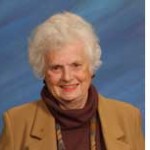By Natasha Josefowitz, Ph.D.

SAN DIEGO — There are many books on aging on bookstore shelves; some are humorous, some serious, some emphasize financial planning, some deal with loss, most wish to help our aging population to age “gracefully.” The new book by Dr. Ken Druck, a noted author, addresses the issue of aging by engaging the reader to work with him. It is a partnership in courage, hence the title of the book: Courageous Aging: Your Best Years Ever Reimagined.
This is not a book you just read; it is a workbook like we used to have in college. There are questions you need to answer or at least think about before you go on to the next page. Dr. Druck starts with a self-audit. The premise being that you cannot change, improve, or let go unless you know what issues you’re dealing with and how you feel about getting older. Some sample questions in the first chapter get fast to the core of possible issues about our aging selves:
What changes do I notice in my body, skin, face, hair, etc., and how do I feel about it? To answer this question, I scanned my 91 year old body and came up with the surprising answer that I don’t look too bad, except I really mind that extra piece of skin under my chin; I try to minimize it with scarves. Also my hair is thinning. I check the back of my head for any bare spots, which I carefully brush over. How do I feel about it? I’m actually okay, grateful that I’m healthy and that these are minor inconveniences.
What are the changes in my memory and ability to think? In this question, I do notice that I mislay my keys and glasses more often, have forgotten a couple of appointments, and mixed people up. I used to beat myself up about it, but now with Ken’s help I have learned self-compassion. The next questions deal with the fears associated with getting older and about dying. There are questions about one’s self-worth, about our ability to handle stress, about our changing relationships with family and friends. Are we becoming more or less patient? All these questions need to be answered. If we are not satisfied with the results, the next chapter deals with resetting our expectations. We are guided to reconsider the regrets, the remorses, the denials, the grudges we have held onto.
How we deal with the inevitable losses and illness is different when these become a permanent part of our lives. How I feel about slowing down, about having less energy is something I have begun to face—first with denial and impatience with myself, and now with my new Courageous Aging I have rejected “the rosy myth and acknowledged that this new season of life often brings along some difficult challenges.” I need to learn to embrace the realities of aging, for example, my macular degeneration, hoping it will not get worse and that I will always be able to read.
Putting our house in order includes financial and medical planning, but also psychological planning. This means making peace with family and friends so that there is no unfinished business left. To this end, the following list of questions would help:
“It would take__________ for me to forgive myself for what happened.
It would take __________ for me to forgive them for what happened.
If only I __________, we might be able to put this behind us.
“If only they would __________, I might be able to put this behind me.”
In planning for the end of life and deciding what kind of legacy we wish to leave, Dr. Druck suggests writing a letter to your future self with the commitments to the change you aspire to in order to become the person you wish to be. I have done that and will open that letter in a year or so to see if I’m still on track to be that tolerant, compassionate, helpful, loving person I plan to be.
This books ends with Dr. Druck’s “Happily Never After” conclusion: “Following a path of courageous living and aging does not lead to happily ever after. There will be ups and downs, clarity and confusion, peace and unrest on the road ahead. Life will be life. And it is up to each of us to find some measure of peace in letting it be so.”
Be courageous and read Courageous Aging.
© Natasha Josefowitz. This article appeared initially in the La Jolla Village News. You may comment to natasha.josefowitz@sdjewishworld.com